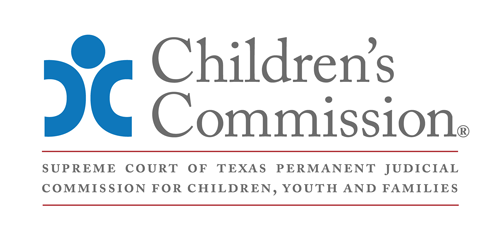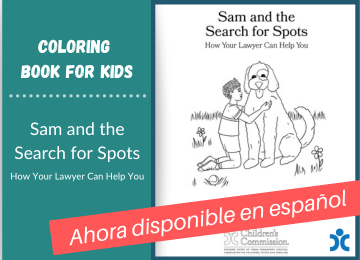For more information, please visit Foster Care & Education webpage.
- School of Origin Determinations for Students in Foster Care
- Top 10 Things to Know About Education for Children in Foster Care in Residential Treatment Centers (RTCs)
- Understanding Support for Foster Alumni: Financial Aid, Enrollment Process & Campus Support
- Enhancing Support for Foster Alumni: Financial Aid, The Foster Care Tuition Waiver, & Campus Support
- Webcast Replay
- PowerPoint
- Foster Care & Student Success: Texas Data and Trends 2018 - Educational Experiences, School Stability, and Academic Achievement
- Are You Eligible for the Education & Training Voucher? *Please note that this tool is best viewed by desktop.* Tool designed to help foster youth or young adults in post-secondary, vocational or technical programs determine if they are eligible to receive the Education & Training Voucher.
- Frequently Asked Questions: Education & Training Voucher
- Are You Eligible for the Tuition Waiver? *Please note that this tool is best viewed by desktop.* Tool designed to help foster youth determine if they are eligible to receive a tuition and fee waiver which exempts or waives payment of tuition and fees for courses that are formula-funded at Texas state-supported (public) colleges or universities for youth or young adults in the conservatorship of DFPS and for those adopted from DFPS.
- Frequently Asked Questions: Tuition Waiver
- Interested in furthering your education? Information sheet for current or former youth in care created by CitySquare
- Texas Child Welfare Law Bench Book:
- Resource Letter for Judges and Attorneys Handling Child Protective Services Cases: Educational Resources for the 2023-2024 School Year
The Texas Blueprint:
- The Texas Blueprint: Transforming Education Outcomes For Children & Youth In Foster Care
- Texas Blueprint Implementation Task Force Final Report
- ABA Child Law Practice: The Texas Blueprint - A Model for Improving School Experiences for Children in Foster Care
2018 Foster Care & Education Summit
In July 2018, Texas hosted its second Foster Care and Education Summit. The 2018 Summit provided an opportunity to look at past accomplishments, assess current challenges, and build momentum going forward. Teams attended from every region in Texas and they included advocates, attorneys, child welfare and education professionals, foster care alumni, and judges. Key themes included using data to drive decisions, engaging youth in decisions that impact their lives, approaching students with a trauma-informed lens, and creating a college-going culture for children and youth in foster care.
Materials:
Texas Foster Care & Education Collaborative Reports:
- 2022 Foster Care and Student Success Resource Guide
- Foster Care College Tuition & Fee Waiver Process
- Infographic: Texas commits to transform education outcomes of students in foster care: Findings from the Texas Blueprint Implementation Data Workgroup
- Information Sharing Between Child Welfare and Schools: Maintaining Privacy and Promoting Educational Success, April 2017
- Regional CPS Education Consortia: The Building Blocks to Engaging Community Stakeholders
- Statewide Survey on Local Collaboration Summary and One-pagers (School, Caregiver, CPS, and Legal)
- Texas CASA: Educational Advocacy Toolkit
- Texas Higher Education Information and Resource Guide for Foster Care Liaisons, September 2018
- The Road to College: Texas Foster Youth & Post-Secondary Education
- Transition Planning Guide for Students in Foster Care Receiving Special Education Services, July 2018
Additional Foster Care & Education Resources
Contacts:
- Department of Family & Protective Services (DFPS):
- Education Service Center: Foster Care Champions
- Higher Education Foster Care Liaisons
- School District Foster Care Liaisons
Links:
- American Bar Association (ABA) Legal Center on Foster Children & Education
- Casey Family Programs
- Education Reach for Texans
- National Working Group on Foster Care & Education: Education Outcomes for Children in Foster Care National Fact Sheet
- Texas Association of School Administrators (TASA)
- Texas Association of School Boards (TASB)
- Texas Court Appointed Special Advocates (CASA)
- Texas Council of Administrators of Special Education (TCASE)
- Texas Department of Family and Protective Services (DFPS)
- Texas Education Agency Foster Care and Student Success Page (TEA)
- U.S. Department of Education: Students in Foster Care

